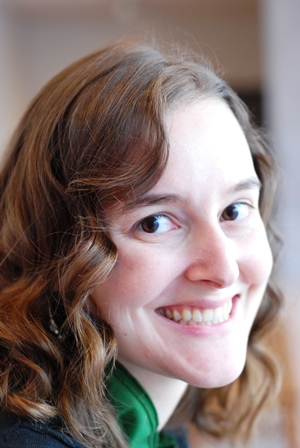Love and Friendship
Jane Austen—humorist?
By Michelle Sinclair
Love and Friendship holds a singular achievement among Jane Austen film adaptations: it is laugh-out-loud funny. Unlike most Austen movies, there’s nothing remotely romantic about the script or story, but neither did romance have much place in marriage during Austen’s day.
In college, I remember trying to read Lady Susan, the short novella on which the film is based, but I didn’t get very far because the format (written entirely in letters) means the reader’s knowledge is entirely based on what characters say is true, rather than showing their actual behavior.
The film adaptation is a colorful improvement on what I remember of the book, breathing life into scenes Austen only sketched. However, given that Love and Friendship’s source material is chock-full of unreliable narration, the movie itself can be hard to follow.
Lady Susan Vernon (Kate Beckinsale) is a youngish widow, matchmaking mother, and seasoned flirt who has just worn out her welcome at the house of a married man. She descends upon another set of relatives, bent on finding a new source of funds—either in the form of a wealthy husband for herself or by finalizing her matrimony plans for her daughter. With her wit and machinations, she soon has a small sphere of 1790s English society in an uproar, and even her own daughter views her with a combination of fear and awe.
The film adaptation is a colorful improvement on what I remember of the book, breathing life into scenes Austen only sketched.
Beckinsale’s Lady Susan wields her brain like a sword or a bulletproof vest, depending on the situation. As a well-born widow left in penury by her husband, she should be one of society’s most vulnerable—a woman with no marketable skills, wholly dependent on her relatives for survival until she can marry again. And yet she is the force of nature no one in this tightly woven drama can stand against for long. Neither Jane Austen nor her brother sought publication for Lady Susan, and that is probably partially due to the novella’s inferiority to her other books. But perhaps Austen also suspected her Lady Susan was simply too bold, too immoral, too powerful an antiheroine for the readership of her day.
Fortunately, many of the other characters provide a welcome ballast against Lady Susan’s superior intellect. Reginald DeCourcy (Xavier Samuel) might not be much more interesting than a handsome model in costume drama clothes, but his parents are a funny and faithful representation of an old married couple with a great deal of affection for each other. The eager young curate, in a nameless role, has a lovely mini-homily on the beauty to be found in the biblical commandment to honor thy father and mother (a commandment that Lady Susan’s virtuous daughter Frederica struggles to obey).
However, as bird-witted Sir James Martin (Frederica’s unwanted suitor), Tom Bennett very nearly steals the movie from Beckinsale. Sir James boggles the mind. How can one side character be so stupid, so socially awkward, and not only funny but entirely believable? Bennett carries his singular role with such aplomb that the audience can’t wait to see him again—even if no one in the movie likes him.
Is the film about love? Not the romantic sort. Is the film about friendship? Not that I can tell, apart from an enabling association between Lady Susan and Mrs. Alicia Johnson (Chloe Sevigny) another woman of questionable integrity. Instead, Love and Friendship is about the push and pull of family obligations and affection, the power of intellect, and a tongue-in-cheek sense of fun.
Love and Friendship is rated PG for some risqué elements discussed with innuendo but never shown.




